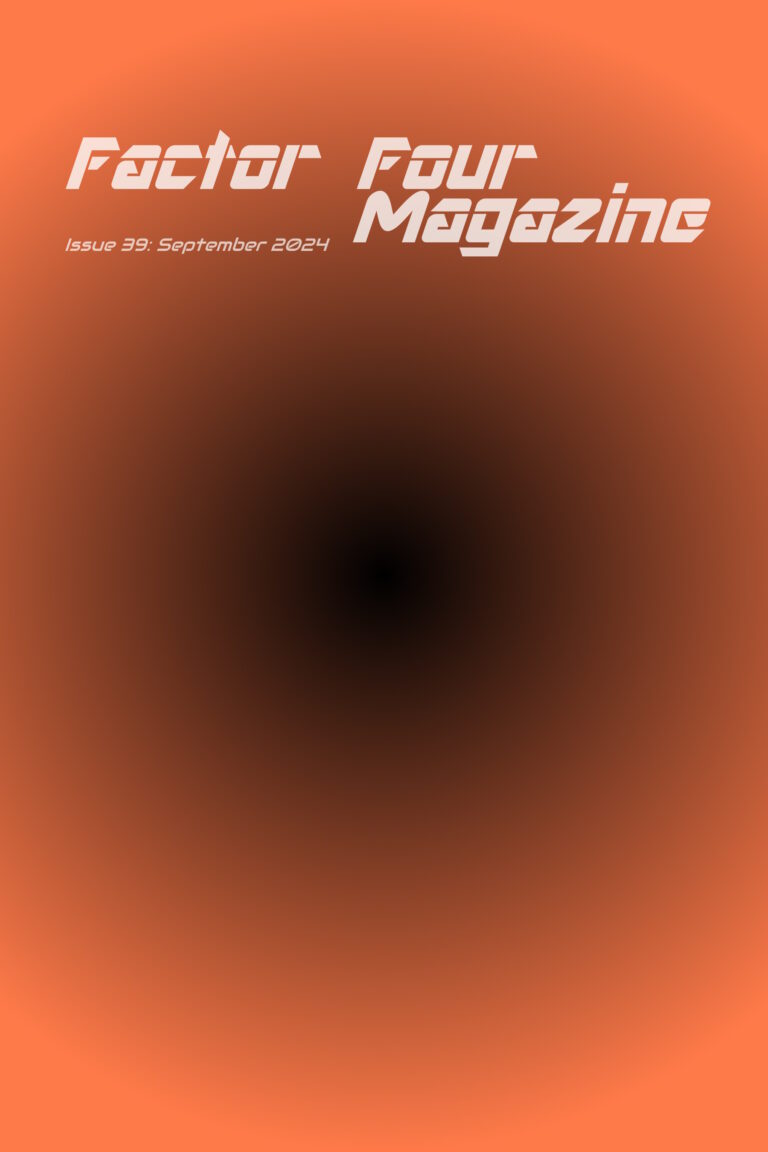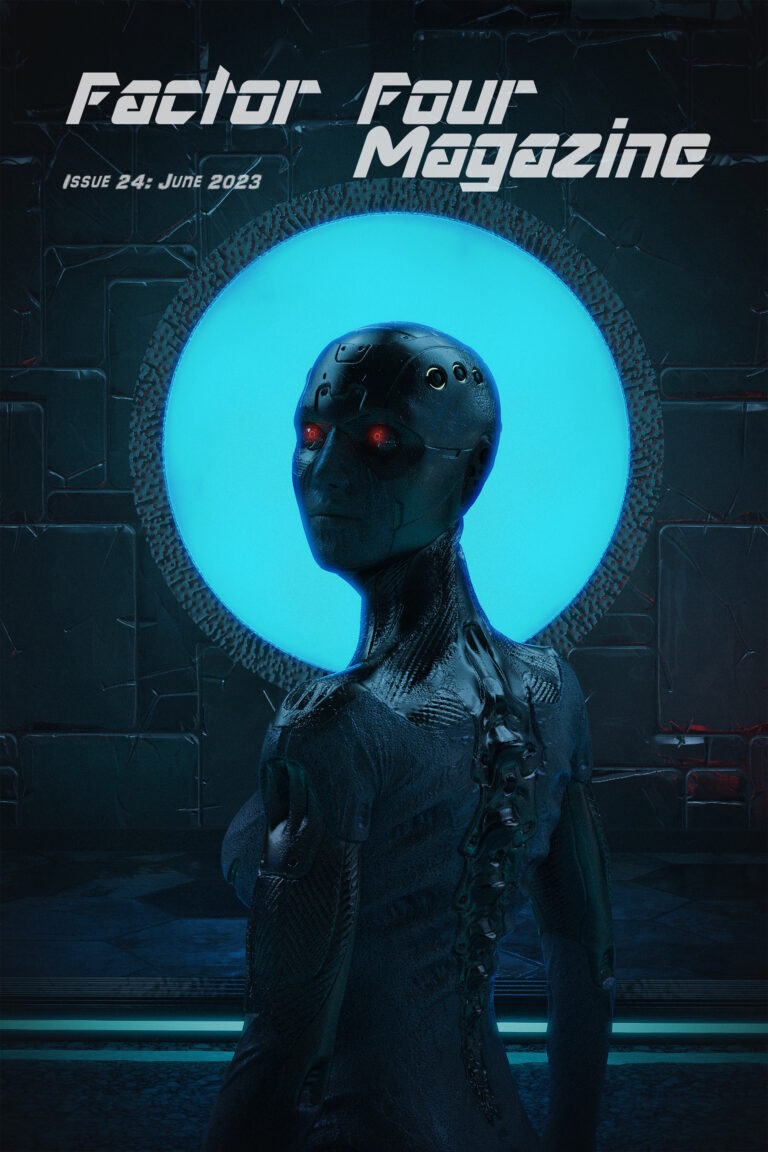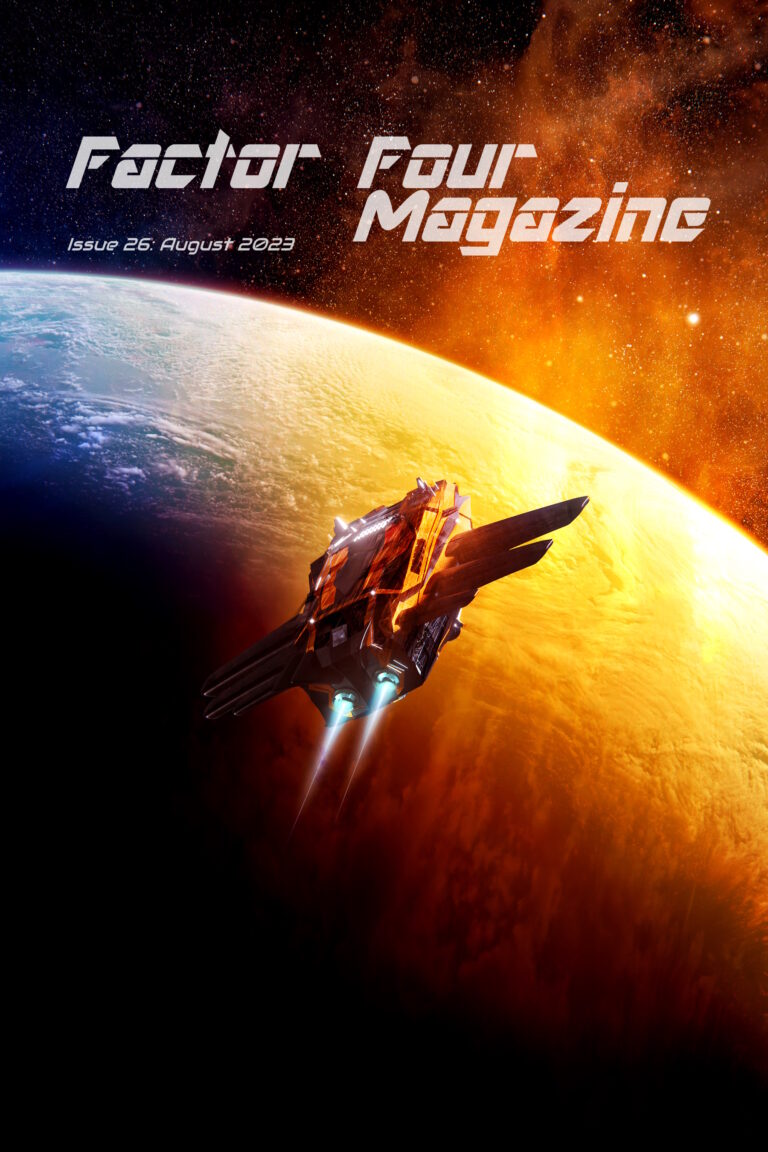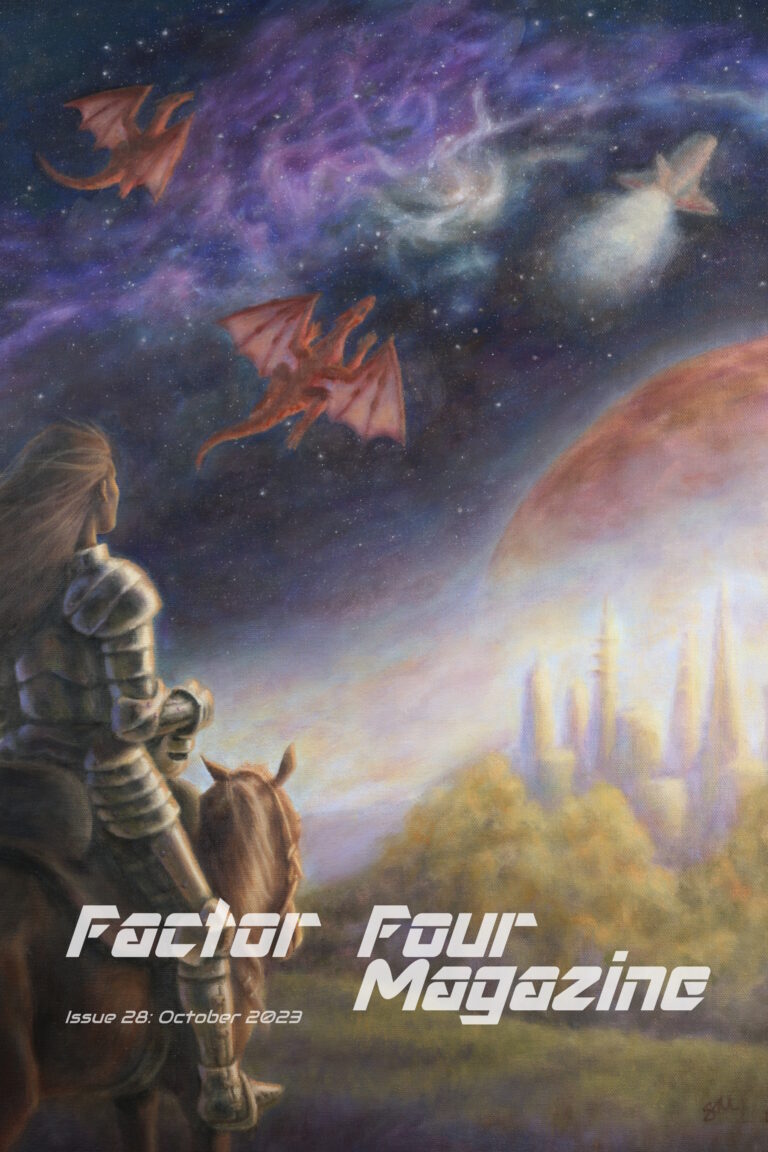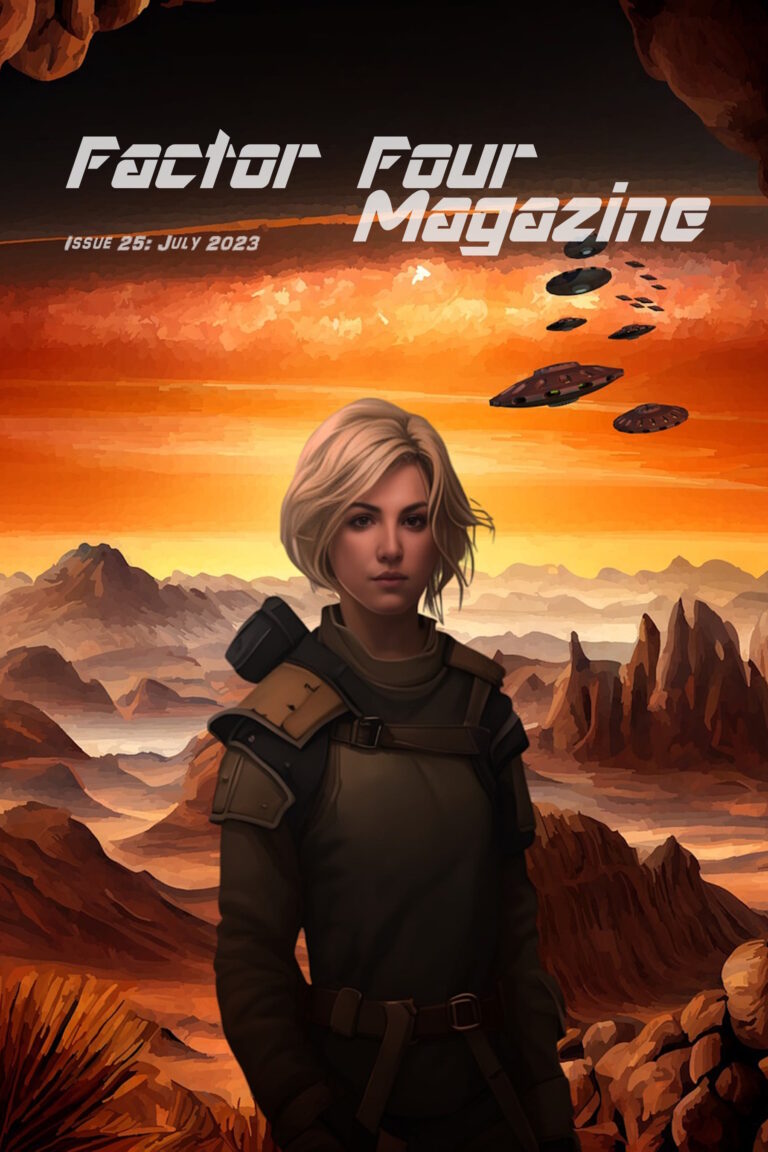Final Illustration of a Disappearing Chalk Artist by Ryan Cole
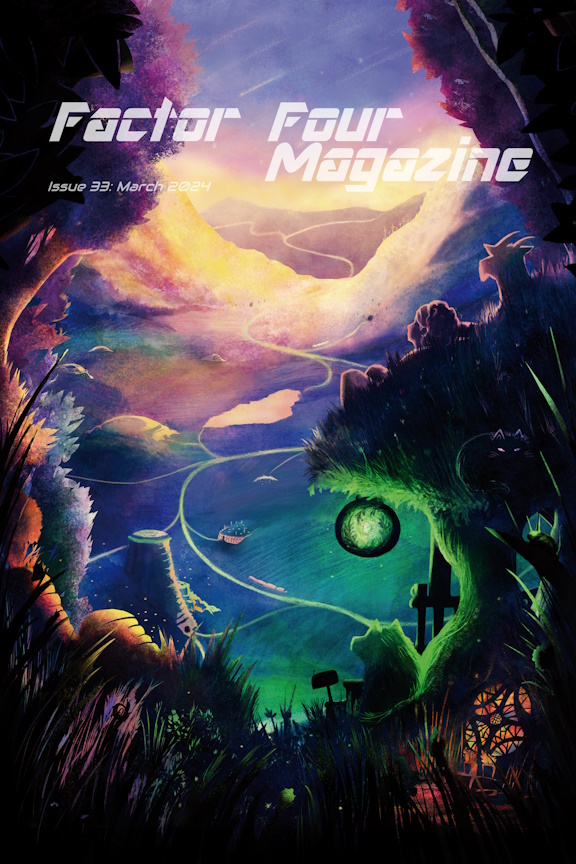
Emma understands that the world might be ending. Wormholes. Soft spots. A parallel universe that’s starting to leak through a hundred different holes in a hundred different cities. One of which happens to be just outside her house, right next to the mailbox, at the end of the driveway.
How much longer do we have? say the newsmen on TV. How can we escape the inter-dimensional apocalypse?
Emma’s only six, but she picks up on their fear. It’s the same that she hears when her mother is on the phone, trading gossip with the neighbors; the same that she sees in her teachers at school when they reassure Emma that things will be okay, and the parallel universe won’t collide with their own, and it won’t kill everything and everyone she’s ever known.
Her father is the only one that doesn’t seem worried. Dr. Addison Murphy. Chief astrophysicist at the University of Virginia. Emma’s whole world. The light in her life.
“We can fix this,” he promises, handing her a lumpy stick of blue sidewalk chalk. “Once we study the holes, we can learn how to close them.”
He leaves out the part that’s made her mother so furious, that earned him a segment on the Charlottesville news, that everyone in town has been talking about for days.
Her father is going where no one else dares: to the other side of the hole. The other universe.
“Write to me?” he says, and he points at the chalk.
Then he holds Emma tight, kisses her goodbye, and walks into the ripples at the end of the driveway.
“Wait!” yells Emma, running towards him. “Don’t go!”
But he’s already gone.
Emma’s seventh birthday. There are t-rex balloons and a cake in the shape of a green stegosaurus—her favorite dinosaur—and a wormhole in her driveway that is steadily growing.
“Is he coming?” says Emma as her mother cuts her a slice. Neither of them mentions the two months of silence, of desperately waiting, of writing “I miss you” in bright blue chalk on the concrete of the driveway, which her father never answers.
She sits in the gravel at the edge of the lawn. Throat gone tight with the words she wants to say and the tears she wants to shed and the invisible energy that’s making it hard to breathe.
Did her father forget her? Is the other universe so much better than her own?
She picks up her cake when the sun starts to set. And as she slumps back inside, she doesn’t see the chalk-line appear on the driveway, right under the wormhole, that cuts across the concrete like a pink magic marker.
In the morning, she discovers the most wonderful present. A pink stegosaurus that’s as long as she is tall, and a note underneath that says “Happy Birthday, my love”.
Eleven years later, Emma graduates from high school.
“Can you believe we’re all still here?” say her friends in disbelief, glancing at the wormholes that are popping up everywhere, invading their world in the hundreds of thousands.
Her father isn’t there. Hasn’t been there for years. Hasn’t met her first girlfriend or been there to comfort her when her mother was in the hospital.
“Soon,” he always writes to her in dusty pink chalk. “I’ll be able to come back soon.”
And always, she waits. Hoping he’ll crawl through the rippling air, and he’ll kiss her on the forehead, and everything can go back to the way it used to be.
But she can’t wait forever.
Emma’s away at college when her mother has a stroke.
She hurries home to help. She spends long nights in the dark of the driveway, fingers blue with chalk, until she can’t sit anymore, and all she wants to do is scream, and she can’t figure out how to put her grief into words.
“I’m so sorry,” writes her father. “I wish I could be there with you.”
Emma sees the lie. Doesn’t know how to respond. If he wanted it enough, wouldn’t he have already come?
Emma is thirty-six when she marries Catrina.
Extinction is near. More people are disappearing day by day. Pretty hard to avoid when the world is more filled with holes than real air, sucking them up like a monstrous Swiss cheese.
Some people have returned, though they can’t explain why. And it’s never the person she wants to see most.
“Can I meet him?” says Catrina on the night of their wedding. Emma deflects, but she knows it won’t work. She can’t keep hiding her past from her present.
When they arrive, it starts to rain. She reads what he’s drawn down the length of the driveway: row upon row of now-fading “I love you”, the pink letters running as the rain picks up, erasing the words she hasn’t come to read in years.
Catrina breaks the silence. “Do you want to write back?”
Of course Emma does. But how can she write what she’s too afraid to ask? Where have you been? How could you leave me when I needed you most?
She decides it’s too hard. So, she lets her father’s final words drip into nothing.
Emma is eighty when she hears a soft knock on the front porch door.
Catrina is napping. The grandkids are at school. Who else would brave the gaping hole in front of their house?
When she opens the door and they meet face-to-face, it’s hard for her to breathe. Hard to imagine how young he still looks. Living only moments while she’s lived eighty years.
“Hello, Emma,” says her father, and he stoops to kiss her forehead.
When his lips touch her skin, she is six years old again, and her future is bright, and there’s nothing she wouldn’t do to feel his arms around her, making her believe he has all the world’s answers.
She guides him through the door, hoping he’ll never have to leave her again.

